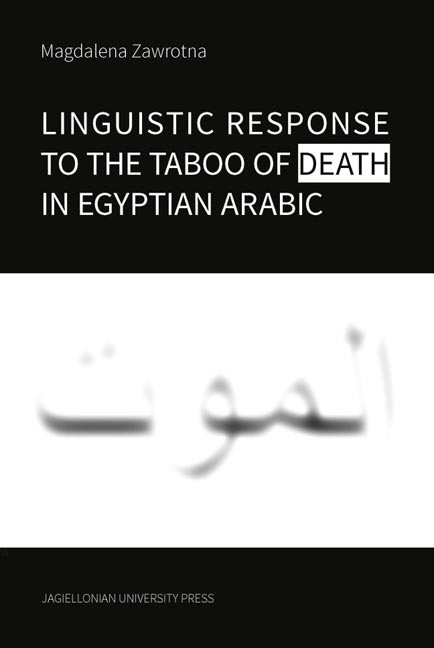Book contents
- Frontmatter
- Contents
- 1 Transcription system
- 2 Introduction
- 3 What is formulaicity?
- 4 Material
- 5 State of research
- 6 Structural notes
- 7 Qualitative analysis of death announcements, comments containing condolences and their responses
- 8 Recapitulation of the analysed material
- 9 Death and the agency of God
- 10 The taboo of death
- 11 Summary
- 12 Questions for further exploration
- Bibliography
- Miscellaneous Endmatter
10 - The taboo of death
Published online by Cambridge University Press: 14 October 2023
- Frontmatter
- Contents
- 1 Transcription system
- 2 Introduction
- 3 What is formulaicity?
- 4 Material
- 5 State of research
- 6 Structural notes
- 7 Qualitative analysis of death announcements, comments containing condolences and their responses
- 8 Recapitulation of the analysed material
- 9 Death and the agency of God
- 10 The taboo of death
- 11 Summary
- 12 Questions for further exploration
- Bibliography
- Miscellaneous Endmatter
Summary
Everyday human exchange poses a number of threats to the social image of the interactants (Brown and Levinson 1987), therefore, a number of restrictions are imposed on people navigating the gamut of daily interactions with other members of the community. Such restrictions may be equated with taboos in which some modes of behaviour, actions or utterances are seen as prohibited. The nature of such taboo exchange is two-fold: on the one hand, it may be a source of benefit or blessing, while on the other hand, it brings danger and causes apprehension. Linguistic interaction in the Arab world may be summed up as: avoiding the evil through recourse to God and seeking the good in every speech moment, which is also achieved through requests directed to God. Blessing and danger are both transmitted in language. Elements of language (words and expressions) are the media carrying what brings luck or misfortune. Positive and negative transmissions are two aspects of communication that can be distinguished in the linguistic exchange, both of which bring a number of ritual behaviours involving a resort to God. People seek baraka ‘blessing’ for themselves and their surroundings as a necessary element of life. For dangerous situations, a number of avoidance strategies are found in communication forming a stable and conventionalised system. A similar point of view is presented by Piamenta:
Every created thing is far from being neutral in respect of man, but it has in it a dual aspect, an active principle of good and an active principle of evil. The common form of istiʿādha in regard to this is: asʾaluka khayra (hu) wa-ʾaʿūdhu bika min sharri (h), ‘I ask Thee for the good of (it) and I take refuge with Thee from the evil of (it)’. Sometimes though only refuge with God from the evil of it mentioned (1979: 96).
Potentially, every situation presents an element of good and evil. In certain situations, when an Arab is involved in a form of danger (taboo), he/she pronounces a formula designed to ensure that he/she would experience only the positive aspects of it. Such utterances are usually invocations addressed to God or Quranic formulae thought to possess magical powers. These might include:
(489) aḷḷāhumma innī asʾaluka ḫayrahā wa aʿūḏu bika min šarrihā ‘Oh, God! I ask Thee for the good of her/him/it and I take refuge with Thee from the evil of her/him/it’ (MP).
- Type
- Chapter
- Information
- Linguistic Response to the Taboo of Death in Egyptian Arabic , pp. 133 - 140Publisher: Jagiellonian University PressPrint publication year: 2021

